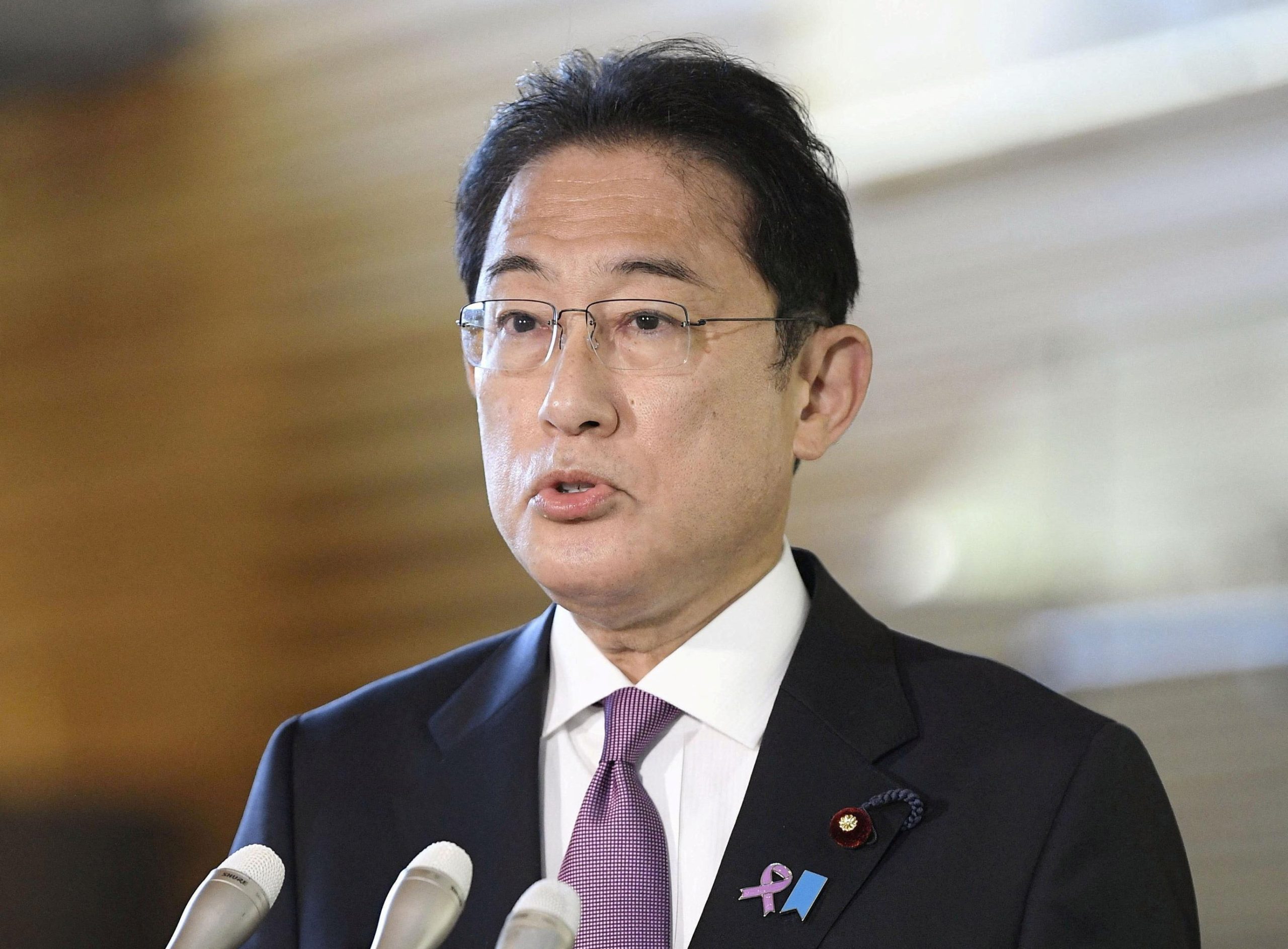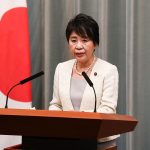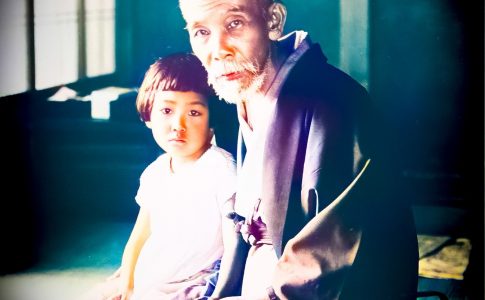Despite a confidential poll conducted by the Liberal Democratic Party (LDP) in late September showing a favorable tailwind, suggesting they could secure a number of seats close to their current count…
#TaxHikeGlasses
#増税メガネ
The hashtag emerged on X (formerly Twitter) in late August. It’s a tag associated with Prime Minister Fumio Kishida. Clicking on it reveals a series of scathing comments on Kishida’s tax hike policy. Derivatives such as “TaxHikeStupidGlasses” have been spawned and continue to spread.
“The criticism about the tax hike policy is quite tough to handle…” Kishida lamented to those around him, but it’s essentially a problem of his own making.
In December 2021, it was Kishida himself who established the Fiscal Health Promotion Headquarters directly under the LDP president, distancing himself from Abenomics. Last December, the abrupt announcement of an annual 1 trillion yen corporate tax hike, accompanying a massive increase in defense spending to 43 trillion yen over five years (2023-2027), is still fresh in memory.
The icing on the cake was a report submitted to Kishida by the Government Tax Council (chaired by Minoru Nakazato) on June 30th this year. Since former Prime Ministers Shinzo Abe and Yoshihide Suga almost ignored the tax council, leading it to be virtually inactive for nine years, the enthusiastic 261-page report proposed tax increases across the board, including revisions to deductions for salaries, retirement benefits, life insurance, as well as taxation revisions for commuting allowances, company housing, and meal provisions. The subsequent uproar over “salaryman tax hikes” was inevitable.
On July 25th, Kishida reportedly told Yoichi Miyazawa, the LDP Tax Council Chair, who visited the Prime Minister’s Office, “There are reports about taxing salarymen, but I have no such plans.” If so, he could have simply rejected the report. However, when receiving the extensive report from Nakazato, Kishida cheerfully responded, “Tax systems are the foundation of tomorrow’s society. Based on this report, we will proceed with considering the tax system for the Reiwa era and aim for a fair and vibrant society.”
On September 25th, Kishida called the LDP’s Political Affairs Research Chair, Hagiuda Koichi, and Komeito’s Political Affairs Research Chair, Takaki Yosuke, to the Prime Minister’s Office, instructing them to formulate economic measures. In a subsequent press conference, he stated, “People who have overcome the pandemic are now suffering from high prices. Now, we want to implement economic measures to return the benefits of (economic) growth, such as increased tax revenues, to the people.” His use of the word “return” subtly hints at tax reductions, indicating his desire to shed the “tax hike” image.
The main reason Kishida is so eager to distance himself from tax hike implications is presumably that he has a year-end dissolution in mind. To ensure his re-election as party president next September, he needs to gain public trust through the House of Representatives election before then. However, there’s the Taiwan presidential election next January, and the possibility of a crisis in Taiwan could overshadow the House of Representatives election.
Kishida seems to regret not dissolving the House of Representatives in June, despite stirring dissolution rumors. The Cabinet reshuffle and party personnel changes on September 13th were also paving stones for a year-end dissolution.
The primary intention was to shift Toshimitsu Motegi, the LDP Secretary-General who doesn’t see eye to eye with Kishida, to the Finance Minister post. Initially, he considered assigning the familiar Hagiuda Koichi to the Secretary-General position, but in light of the upcoming House of Representatives election, he believed that appointing Yuko Obuchi, former Minister of Economy, Trade, and Industry, and the daughter of the late Prime Minister Keizo Obuchi, would refresh the party’s image.
However, he abandoned the idea when Motegi expressed strong attachment to the Secretary-General position. Reluctantly, he appointed Obuchi as the Election Strategy Committee Chair, a supporting role to the Secretary-General, with the intention of keeping Motegi in check.
Kishida also considered switching the Chief Cabinet Secretary from Hiroshi Matsuno to Hagiuda Koichi but held back due to opposition from former General Affairs Chair Toshimitsu Endo and others, citing Hagiuda’s ties with the Unification Church. Retaining the key positions of Secretary-General and Chief Cabinet Secretary diluted the sense of renewal, making the reshuffle’s intentions ambiguous. Nonetheless, Kishida likely believed that if he won the House of Representatives election, he could overhaul personnel in his third cabinet.
Five Female Ministers Reflecting Lower House Election Strategy: Several Commendable Choices in the New Cabinet
A notable decision was the appointment of Yoko Kamikawa as the Foreign Minister. Kamikawa, who previously served as the Justice Minister, made a significant move in July 2018 when she executed the death sentences of 13 senior members of the Aum Shinrikyo cult, including its leader Chizuo Matsumoto, known as Shoko Asahara, without informing the then Prime Minister, Shinzo Abe, until just before the act. This demonstrated her strong determination.
Kamikawa, having served as the Justice Minister three times, has a staunch commitment to the rule of law in the international community. With the prolonged Ukraine war and rising tensions around Taiwan, she is well-suited to send a strong message to the global arena.
She is expected to perform significantly better than her predecessor, Yoshimasa Hayashi, who was more inclined towards China. Hayashi was somewhat helpless in confronting China’s rash decision to ban the import of Japanese seafood products due to unfounded rumors surrounding the release of treated water from the Fukushima Daiichi Nuclear Power Plant. Kamikawa, who shares Western values, should pose a greater challenge to China.
The political dynamics behind Kamikawa’s appointment also deserve attention. While she is affiliated with the Kishida faction within the ruling party, she has close ties with Yoshihide Suga, a leader of the party’s non-mainstream faction. Hints of Kishida Fumio’s strategy to reach out to this faction are evident.
Appointing Minoru Kihara as Defense Minister has also been a commendable move. Kihara, with his experience as a security advisor during Shinzo Abe’s cabinet and his detailed knowledge on defense and security issues, is also a leading figure supporting Taiwan. Upon taking office, he promptly visited Miyakojima and Ishigaki in Okinawa, signaling an intention to strengthen the defense of the southwestern islands. This appointment underscores Kishida’s serious concern about the situation in Taiwan.
Retaining key figures in the cabinet, such as Yasutoshi Nishimura in charge of energy and the Green Transformation (GX), Sanae Takaichi, who is pushing for the legalization of security clearance, and digital reform minister Taro Kono, goes beyond simply “keeping the reins after Kishida.” Changing them could have cast doubts on policy consistency, potentially affecting markets.
However, the decision to appoint as many as five female ministers seems to be a transparent play for votes in the Lower House election, and as a result, the cabinet’s approval rating hasn’t improved. It might have been better to dissolve the Lower House during the regular session, hold the election in July, and then establish a solid government. Kishida Fumio might be regretting his choices.
The composition of the new cabinet suggests that Kishida Fumio is steering towards dissolving the House of Representatives within the year. However, his usual lack of sense of scheduling is evident.
Had he instructed both parties to draft economic measures right after the cabinet reshuffle in September, it would have been possible to propose a supplementary budget at the start of the special Diet session in mid-October. Fast-tracking its approval after the policy speech and interpellations could have paved the way for a Lower House dissolution in late October, with elections possible in November.
However, by waiting until the end of October to finalize the ruling party’s economic policy and then having the Finance Ministry draft the bill, the submission to the Diet would be delayed to mid-November. This makes a Diet dissolution in late November the earliest possibility, resulting in an improbable election date on either Christmas Eve or New Year’s Eve.
Furthermore, the government and ruling party had originally planned to convene a special Diet session on October 16th, but had to push it to the 20th due to an overlap with the Emperor’s local inspection. It’s unbelievable that such a basic oversight occurred two years after the government’s inception. Ending the policy speech and interpellations with the Diet in limbo until the supplementary budget is proposed is also an odd decision.
Rumors have circulated within the Liberal Democratic Party (LDP) that the government might dissolve the Lower House right at the start of the special Diet session after merely presenting the economic measures. This has been fueled by a confidential LDP survey conducted in late September, suggesting the party could secure a number of seats close to their current count.
Aso’s Comment “Komeito is a Cancer”: The True Intention
On September 28, 2017, then-Prime Minister Shinzo Abe, citing the increasing threat from North Korea, announced a snap election to “overcome the national crisis,” dissolving the Lower House at the outset of the extraordinary Diet session. On October 22, the election was held, resulting in a significant victory for the Liberal Democratic Party (LDP). As the Taiwanese presidential election approaches and concerns about the “Taiwan Strait Crisis” intensify, the possibility remains that Prime Minister Fumio Kishida might call for a snap election at the beginning of the extraordinary Diet session.
However, on October 2, Kishida responded to an interview with the Yomiuri Shimbun, stating that he aims to “swiftly compile a supplementary budget, which will include new economic measures, and wants to submit it to the extraordinary Diet session. Furthermore, if submitted, he wants it to be approved.” If true, this would mean giving up on dissolving the Lower House within the year.
Despite this, Kishida has not conveyed a clear policy to even the LDP executive leadership. On October 1, Hiroshi Moriyama, the Secretary-General of the LDP, mentioned tax cuts during a lecture in Kitami City, Hokkaido, stating that “matters related to taxes must be put to the judgment of the people.” He suggested that tax cuts could be a valid reason for dissolution. The party’s executive board is growing impatient with Kishida’s indecisiveness.
On September 24, Deputy Prime Minister Taro Aso gave a lecture in Fukuoka City. Referring to the defense documents formulated at the end of last year, he singled out Komeito’s leader, Natsuo Yamaguchi, its Secretary-General, Keiichi Ishii, and its Deputy Representative, Kazuo Kitagawa, describing them as the “least responsive cancers” of Komeito. While facing criticism for why he would make comments that could widen the rift within the ruling coalition during discussions on dissolving the Lower House, Aso’s remarks had two implications.
Firstly, the joint development of the next-generation fighter jet between Japan, the UK, and Italy is gaining momentum, making the revision of the defense equipment export rules a pressing issue. Komeito has been showing reluctance towards this, threatening the entire joint development initiative. Aso’s comments aim to check this resistance.
Secondly, due to the “increase by 10, decrease by 10” in the Lower House, there has been a growing distance between the LDP’s base and Komeito in Tokyo.
Former Prime Minister Shinzo Abe boasted a solid “30% from the right” base, leading his party to victory in three Lower House and three Upper House elections. However, Prime Minister Fumio Kishida has been trying to expand his appeal to the left, leading to erosion from his right-leaning base. The establishment of the Japan Conservative Party by author Naoki Hyakuta and others can be seen as part of this trend.
“If the LDP cozies up to Komeito for Soka Gakkai votes in the Lower House elections, it
might speed up the detachment of its core conservative base,” some analysts suggest. Aso’s comments can be seen as a reflection of this growing sense of crisis.
Ishin’s Strategy Targets LDP’s Stronghold
The Japan Innovation Party (Nippon Ishin no Kai) also aims to expand its support within the LDP base. Despite retiring from politics, the influential former Osaka Mayor, Ichiro Matsui, associated with the Japan Innovation Party, remarked, “Coalition governments exist worldwide, but they are formed based on election outcomes. In Japan alone, coalitions conduct elections jointly. It doesn’t make sense any way you think about it.”
As his words suggest, the Japan Innovation Party is expected to harshly criticize the “LDP-Komeito collusion” in the upcoming Lower House elections. There isn’t an electoral district where Komeito can secure seats only with Soka Gakkai votes. It’s the LDP’s base that has been casting their votes, enabling Komeito to secure seats in 11 districts nationwide.
The critique of the “LDP-Komeito collusion” significantly resonates with the LDP base. If the LDP’s base drifts towards the Japan Innovation Party in all 11 districts, Komeito might lose many seats.
The LDP isn’t safe either. There’s a potential that the party might lose its solid “30% from the right” base to the Japan Innovation Party. Leaning more towards Komeito for votes would plunge the LDP into a dilemma, further losing votes to the Japan Innovation Party.
The power dynamics in the Lower House are expected to shift significantly in the next elections. If the LDP and Komeito lose seats, the likelihood of the Democratic Party for the People joining the coalition might increase.
While the Japan Innovation Party is gaining momentum, potentially becoming the largest opposition party, they have no intentions of joining the coalition. They plan to approach each policy and bill on its merits. It’s anticipated they might exploit the rifts within the LDP-Komeito alliance, especially on issues like constitutional amendments and reductions in the number of Diet members. Parties like the Constitutional Democratic Party and the Communist Party might further lose their relevance.
For Kishida to take the initiative, he must dissolve the Lower House sooner rather than later. If he doesn’t, he risks losing more of the LDP’s cohesion and might face internal pressures to resign.












Leave a Reply